Hidden treasures, part 2: He who watcheth
Posted Friday, 31st July 2015
As I mentioned last week, the story of the Lorrain’s “holiday trip of 4000 miles” is too good not to be shared. It is very much fixed at a certain point in time but is so well written that it gives a different, perhaps more complete, perspective than we would perhaps find in a history book. Enjoy escaping the modern world for a few minutes.
Over to Mrs. Lorrain for our second installment…
“… to Sairang. It is a fairly easy march of 12½ miles, down-hill nearly all the way, & the road is shaded for the most part by feathery bamboos, bananas, & other tropical trees. Were it not for this kind protection the road would be well nigh impassable during the greater part of the day, for the sun shines full on the mountain side & where the forest has been cleared the concentrated heat is almost unendurable, especially is this so as we get lower down, where the breeze is intercepted by the surrounding hills. Down, down, down we go, at a brisk walk, every now and then stopping to take a draught of water from the pretty cascades which cross our path or to enjoy the cool of some secluded spot shut in, by the overhanging foliage & the rugged hill side, from the rays of the sun.
Suddenly there is a noise away up on the mountain, we stand still & look upwards, the sound grows louder & louder & presently a large boulder comes thundering down, gives one mighty bound on to the path we have just traversed& then never staying in its mad career, leaps into the valley below, crashing through the jungle, & overthrowing every obstacle until at last the sound dies away in a faint murmur & we surmise that it has found a resting place at last in the bed of a mountain stream. How true it is that He who watcheth over us, slumbers not nor sleeps & no thing however trivial, happens by chance. Surely it was naught but the good hand of our Jehovah God which prevented that rock from becoming detached from its place two minutes earlier and crushing us to atoms. May we not, at this the outset of our journey, take this as an earnest of Divine protection from the many dangers known & unknown which will threaten us during all our wanderings & as a pledge that we shall return to our mountain home in peace & safety? The latter part of the walk there is not much talking done, the heat is too great & we are already beginning to feel tired & faint, we have within an hour or two, come from the temperate climate of the hill tops to the more than tropical heat of a mountain-locked valley more than 3000 feet lower. Presently Sairang burst upon our view at a sharp turn of the road, & very soon we are walking across the desolate bazaar where several Bengalis drive a good trade among the Lushais in cloth, salt and copper cooking pots. Then we reach a bamboo shanty which serves as post & telegraph office. & there we find both the Baboos suffering from fever & looking altogether miserable. It is a curious thing that an office like Sairang, where there is not above a weeks honest work to be got through during the whole twelve months of the year, should be provided with both a telegraph operator & a postmaster. Both these are Bengalis. And the telegraph operator especially not being over-troubled with a conscience, thinks nothing of shutting up office & taking a days fishing occasionally & leaving what few telegrams there may be to look after themselves. A little distance from the post-office is the stockade where the sepoys in charge of this unhealthy outpost drag out a miserable existence, looking forward no doubt to the time when they shall be able to take their turn in the fort at Aijal. We now pass along a narrow winding path & very soon come upon the Rest House or “Dâk Bungalow” which is a very pretty little house built of timber, reeds & mud. It is raised some 10 ft above the ground on stout timber supports & the verandah is reached by two flights of wooden steps. The river is close by & we soon hurry off to make arrangements for the morrow’s boats; which over, we are glad to fling ourselves down in the only chairs which the bungalow can boast of, draw out to the verandah an old housemade table, & enjoy the luxury of a cup of tea & a good rest. Rest did I say? Why I was forgetting that we are in Sairang, there is no such thing as “rest” there during the rains, with its myriad of mosquitos and sand-flies. But the rains have only just begun, and by walking up & down, trying to read, & a good deal of slapping & scratching & rubbing of our persons we are able to pass the time fairly well, till the boy brings dinner. This meal over we again try to read by lamplight, but finally have to give it up & to seek the shelter of our mosquito nets where kindly sleep soon puts an end to our troubles.
The morning of May 6th dawns clear & bright, and we are up betimes to enjoy the cool breeze which is making itself felt. We have the pleasure of looking forward to spending the best part of the day in this delightful spot, as we are to wait for the arrival of W.K- the engineer at Aijal who is to be our travelling companion as far as the Khassia Hills. He would have down with us yesterday had he been able to obtain enough coolies to carry his luggage. The day is spent in getting the boat ready & putting our luggage on board. By & by K’s things begin to arrive & by the time these are stowed away K. himself puts in an appearance & after taking a short rest we all three embark & about 5 o/c we are quietly drifting down with the current, not caring how far we get before dark so long as we do not have to spend the night in Sairang. While we are gliding along so quickly let us have a look at our tiny fleet. There are three boats; one occupied by our friend K – & his dog, another serving as a temporary house for Fred & myself, and a third doing duty for a cook house, wherein are seated our boy Khuma enjoying the novelty of rapid motion for the first time in his life perhaps, K’s cook who is preparing the evening meal over a fire in an old kerosene oil tin and K’s table servant, a portly Mussulman with gigantic turban & flowing white robes. Just as the sun sets we come to the head of the famous “ long rapid”, and fearing to risk shooting it in the gloom which has already succeeded to daylight, we tie up for the night, pull out a little camp table which we have brought with us & set it upon the shore & then having lighted a couple of candles we sit round on our wicker chairs & eat the dinner which our boys have prepared, the while dodging the crowds of curious insects which attracted by the light have come to keep us company. As soon as possible we are glad to remove our seats to a distance from the light & to converse on various subjects, until at last we say good night & make for our respective boats. Crawling under the bamboo mat roof which puts one much in mind of a dog kennel, we spread our blankets, put up our mosquito nets & tucking them in safely all round to prevent the intrusion of unwelcome visitors, we commit ourselves to the care of our Father and lie down to sleep…”
Categories: UncategorizedHidden treasure
Posted Friday, 24th July 2015
Seeing as I have now been in post for three weeks, I thought it about time that I write a blog post to replace the advertisement for my position. My first three weeks at the Angus have been wonderful. The team has been incredibly welcoming and I delight daily at all the wonderful items we have in the archives. I have a huge interest in social history and we certainly have a very large amount of documents which can be read to feed this interest. As the HLF-funded project I am working on here at the Angus is called Hidden Treasures, this is the short story of my first discovery of a hidden treasure from the archives.
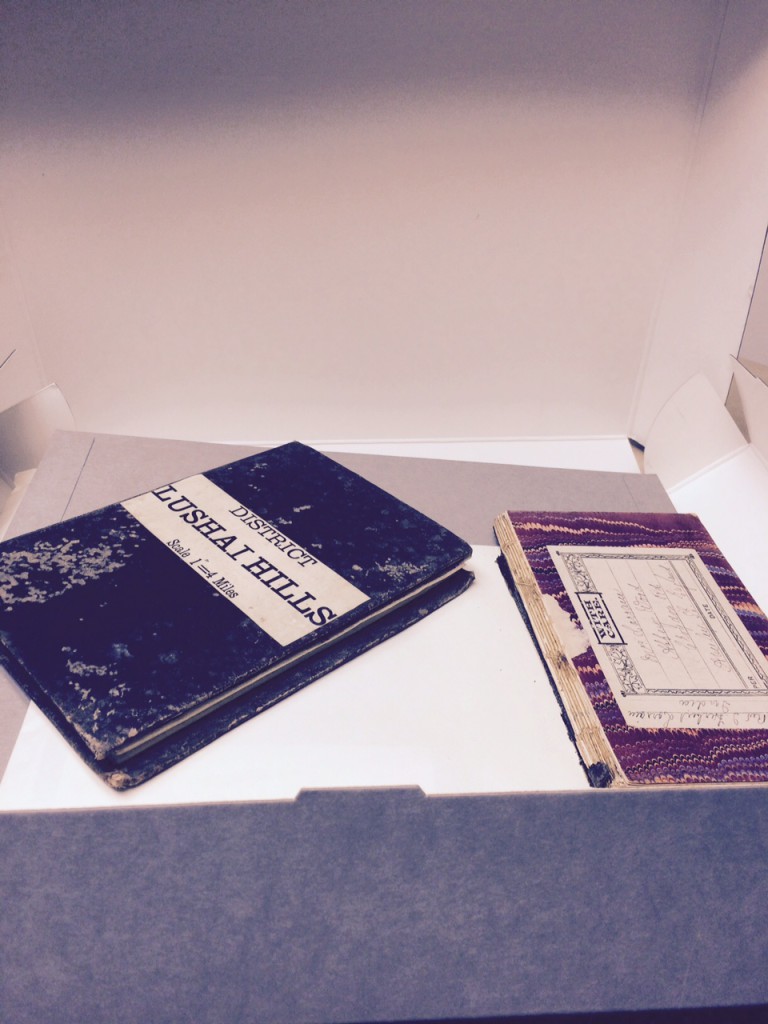
A reader came in on Monday researching missionaries in the Lushai Hills (now Mizoram), India, for his PhD. As I was putting the boxes back into the stack, I decided to have a quick peek into one of them. I was immediately drawn to one of the small notebooks and started to read. This diary, written by Mrs Lorraine, tells the story of a holiday she took with her husband between May and August 1896. I hope you enjoy this as much as I have.
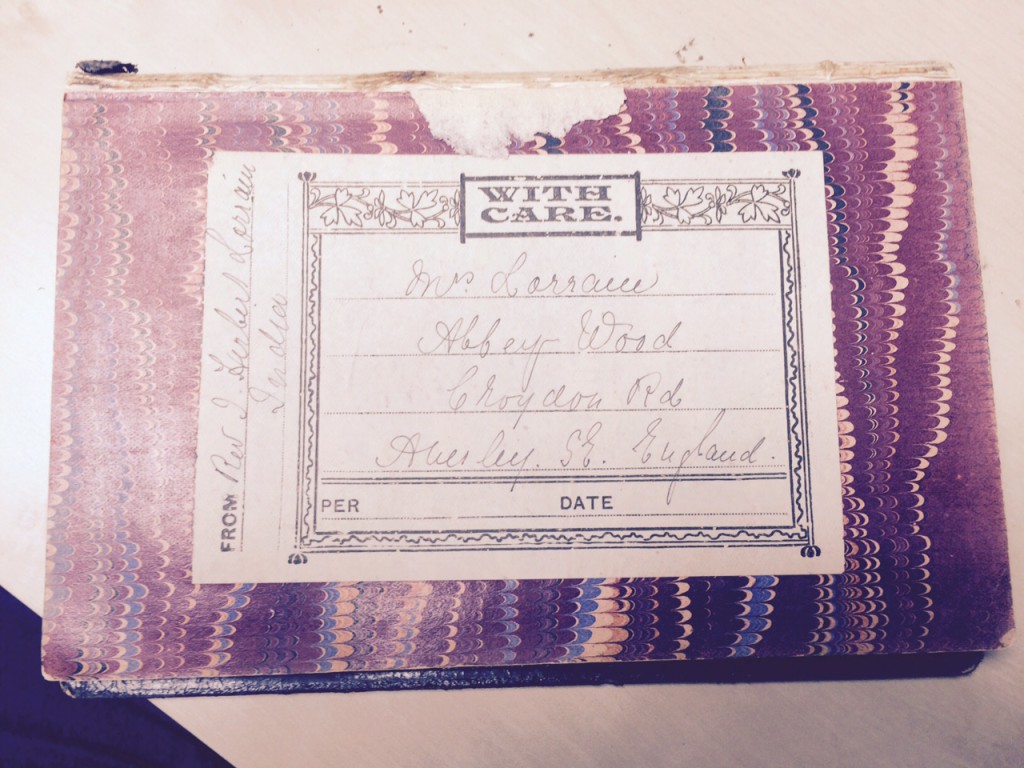
I now hand over to Mrs Lorraine…
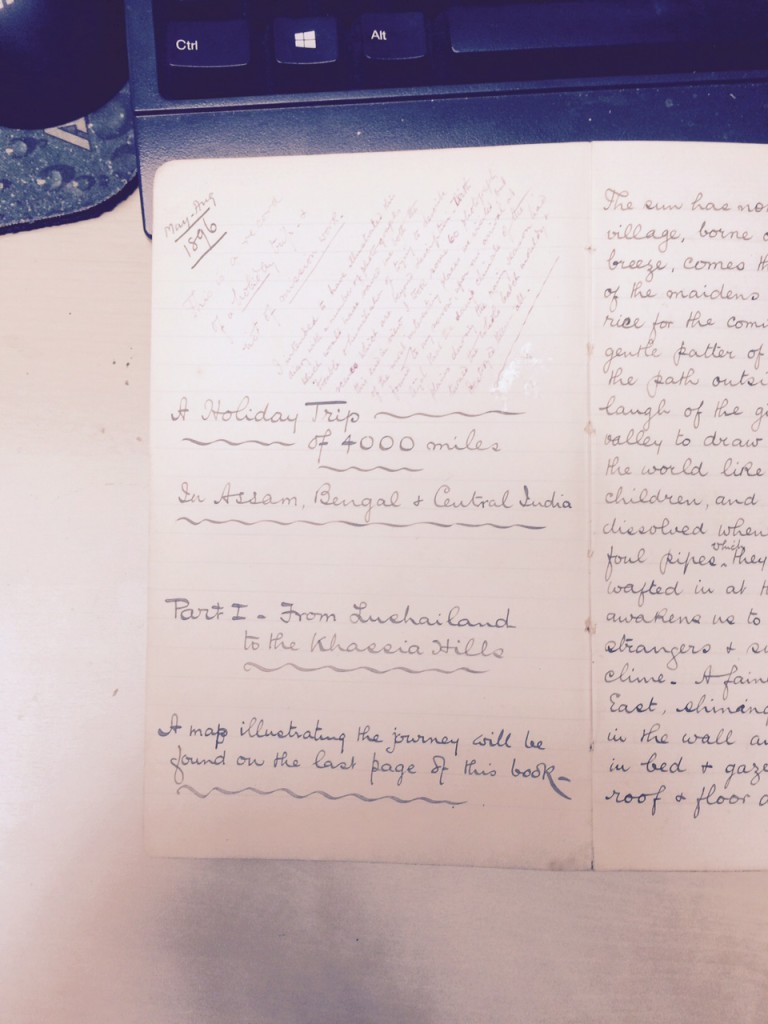
“The sun has not yet risen. From the village, borne on the gentle morning breeze, comes the monotonous thud, thud of the maidens pounding the household rice for the coming day, presently the gentle patter of bare feet is heard on the path outside and the silvery laugh of the girls as they go to the valley to draw water, sounds for all the world like that of happy English children, and the illusion is only dissolved when the smell of foul pipes which they are smoking is wafted in at the window and fully awakens us to the fact that we are strangers & sojourners in a foreign clime. A faint light appears in the East, shining through the cracks in the wall and as we turn over in bed & gaze upon the bamboo roof & floor and walls which it reveals, all dreams of the homeland which may have blessed our sleeping hours, vanish, and with something which sounds very much like a sigh, we slip from under our mosquito net & commence the process of washing and dressing. While this is in progress, the back door is opened by a little native boy, who slips in & spreads the table for the early morning meal, which ready, he opens the front door by carrying it away bodily to the other end of the verandah & props up the flaps which serve as shutters to the unglazed lattice windows, and lets in the light of the sun which has just risen. As we sip our tea we converse upon the approaching journey & wonder if the men & women who last night so faithfully promised to carry down our luggage to the river, will at the last moment back out of their contract. Through the open door we catch a glimpse of one or two of them coming up the path to test the weight of the various packages which litter the verandah. This we must not allow as experience has taught us that if they lift even the light loads from the ground with their hands the imagine that they are too heavy for them to carry; whereas if we lift them ourselves & put them on their backs so as to rest on the strap which passes across their forehead they carry them off quite happily without grumbling at the weight. Two or three bearers are got off in this way and by & by others come up & before long the verandah is clear & only one or two women remain behind to carry down the pots and pans which at present moment are being used in the cook house to prepare our chotahazri – There is now a lull, during which we can have prayers undisturbed, and commit ourselves to Him who is able to take us through all our wanderings safely & bring us back to this little cottage which we call home. There are still a few minutes wanting to eight o’clock so we may as well walk up and down the verandah & look for the last time for many weeks upon the familiar scenes around us. The house is situated upon the very top of a mountain ridge, which slopes down steeply in front to a deep valley, and behind forms a precipice covered with dense forest. From the front verandah, looking eastward the scene is one of peculiar beauty, steep mountain ranges from the most part running N. & S. like the one upon which we stand, rise one behind the other as far as the eye can reach until they are lost in the distance on the Burmese frontier. The valleys between the ranges are filled with clouds, which in the morning light shine like freshly fallen snow & from this sea of dazzling whiteness, thickly wooded peaks and spurs rise like a fairy archipelago. As we watch, a breeze disturbs the even surface of the cloudy sea, & the whole assumes the aspect of an angry ocean, dashing against the rocky islet, submerging some & leaving others high and dry, rushing like a mighty cataract over project spurs, & sending its milk white spray high into the heavens. Then a grand transformation takes place, the clouds influenced by the warm rays of the sun, rise from the valleys, and as they ascend higher & higher they are at last dissolved into invisible vapour, & for the first time we see the well wooded valleys & the precipitous mountain sides covered with their wealth of tropical greenery, broken there & there by the jooms or cultivated patches of the Lushais. If we go around to the back of the house & look westward, a view even prettier than the one upon which we have just been gazing meets our eyes. To the N. & S., on either side of our house a slight indentation in the ridge, forms a natural boundary between our domain & the Lushai villages, into either of which it would not be a difficult matter to throw a stone from our verandah. But we must hurry, for chota hazri is already on the table & we have got a long walk before us. Of course you know that chotahazri means – Chota “small” and hazri “breakfast”. With us it is generally indeed almost invariably, consists of a plate of porridge, an egg & a piece of bread & butter or jam. Perhaps you mistook the other meal which we had at sunrise for chotahazri. That was what is known in Assam as palang cha or “bed tea” because as a rule it is brought to us by one’s bed by the quiet-footed native servant as soon as the dawn begins to break. But we like to get up to have it, as taking it in bed is liable to make one lazy, & anything which tends to this evil must in India be strenuously withstood. A cup of tea at early dawn is in this country a necessity & not a luxury for without it the system is unable to overcome the pernicious influence of the climate, unless indeed one stays in bed until the choto hazri is ready, and loses the best part of the morning. But we must not loiter; the cooking pots, camp stove &c are already being packed into the women’s curiously shaped baskets, and our little Lushai boy Khuma is anxious to start, upon what will be to him a wonderful journey indeed, for he has never been away from his native hills before. A few of his friends I see are entrusting him with money where with to purchase beads when he arrives in the great city of palaces the marvellous “foreign village of Kulkuta” (Calcutta) as the Lushais call it. The other Lushai lad, Lusheia, who is to stop and take care of the house while we are away, looks rather cast down, and evidently reflecting upon the possibility of a repetition of the fearful tornado we had the other day, calmly asks what steps he had better take in case of the house being blown down. Giving him our parting injunctions, which mainly consist of exhortations to keep the books well dusted & to put them out in the sun on fine days, which, by the way, is the only means of keeping them from rotting during the rainy season, we pass from our humble cottage, salute the crowds of friendly Lushais who are at the gate to say farewell, and soon we are on our way…”
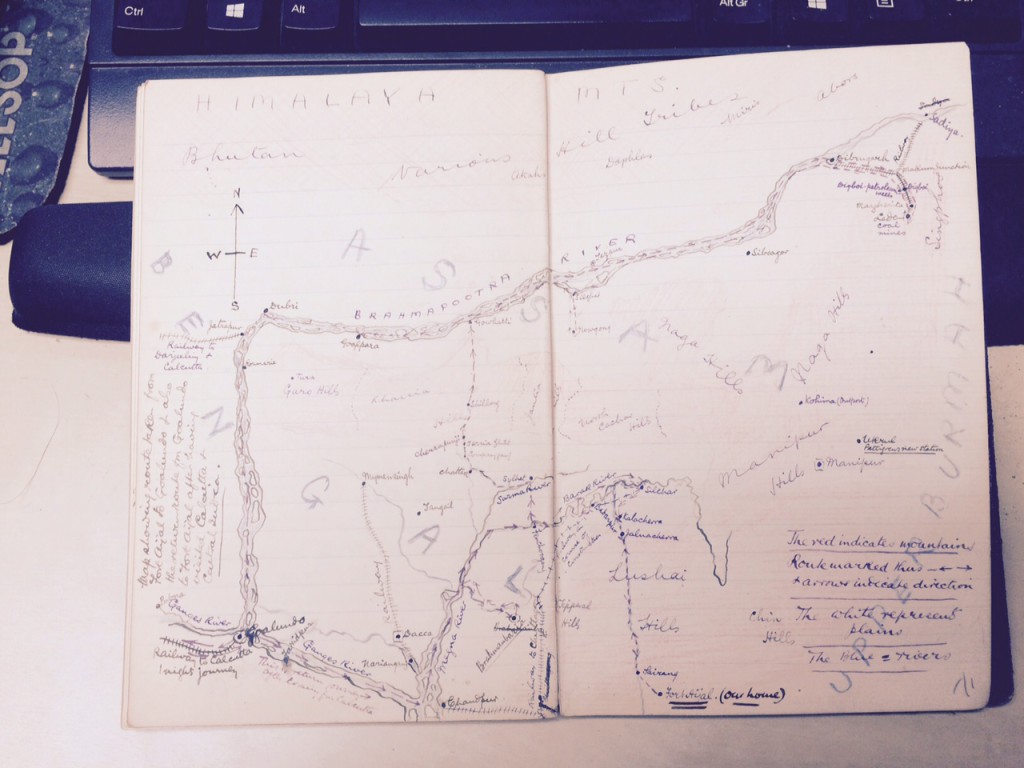 Categories: Uncategorized
Categories: Uncategorized Job Vacancy: Project Administrator FT 8 months
Posted Monday, 1st June 2015
Project Administrator
The Angus Library and Archive
8 months, full-time
£20,000 pro rata
Regent’s Park College (RPC), a Permanent Private Hall of the University of Oxford, has a grant- funded position for a Project Administrator. RPC has secured funding from the Heritage Lottery Fund (HLF) and the Baptist Union’s Newington Court Fund to deliver an exciting project which will enable The Angus Library and Archive (The Angus) to reach a wider audience resulting in greater participation.
We are therefore looking to recruit an enthusiastic, highly organised and motivated person to fill this varied and interesting post. This position will provide administrative support for the already developed outreach project, alongside providing office management and administrative support for The Angus, in particular the College Librarian. Experience with HLF projects would be an advantage but not essential.
For more information regarding this position or to request an information pack please contact Anja Clark: angus.library@regents.ox.ac.uk or (01865)288142.
Closing date is 5pm 12th June 2015. Interviews will be held on the 16th June 2015.
Categories: UncategorizedVirtue and Vice and All Things Nice: Free exhibition and talks
Posted Tuesday, 7th April 2015
Booking now open!
20th – 25th April, Regent’s Park College, Oxford
An exhibition celebrating literature, Virtue and Vice and All Things Nice, seeks to unveil some of the extraordinary and exquisite works that can be found filling a non-conformist library. Featured works will include wonderful accounts of travel and exploration, early examples of children’s literature and a selection of work by John Bunyan.
Two free talks will be held in conjunction with the exhibition:
23rd April, 5.45pm, ‘The invention of John Bunyan’ with Prof. Anne Dunan-Page
24th April, 5.45pm, ‘Many Other Things, Both Pleasant and Useful: Children’s Books from the Angus Library’ with Dr Hannah Field
Anne Dunan-Page is Professor of Early-Modern Studies at Aix-Marseille University (France) and President of the International John Bunyan Society. She completed a PhD on the work of John Bunyan and an HDR (Habilitation à Diriger des Recherches) on the question of dissenting identity at the Restoration. Her current project is a monograph on gathered Churches, based on their Church books, and the preparation, with Michael Davies and Joel Halcomb, of a calendar of Dissenting Church records.
Hannah Field is a lecturer in English at the University of Lincoln. She completed her DPhil, on the subject of the Victorian novelty books for children, at the University of Oxford. Her research interests are the literature and material culture of the nineteenth century, book history, and children’s literature and she has published essays on Beatrix Potter, Rumer Godden, and toys in literature, among other topics.
For more information about our upcoming and past exhibitions visit our Exhibitions page
Categories: Uncategorized
Medical marvels from Dr Joseph Angus’ Autograph Book
Posted Friday, 13th February 2015
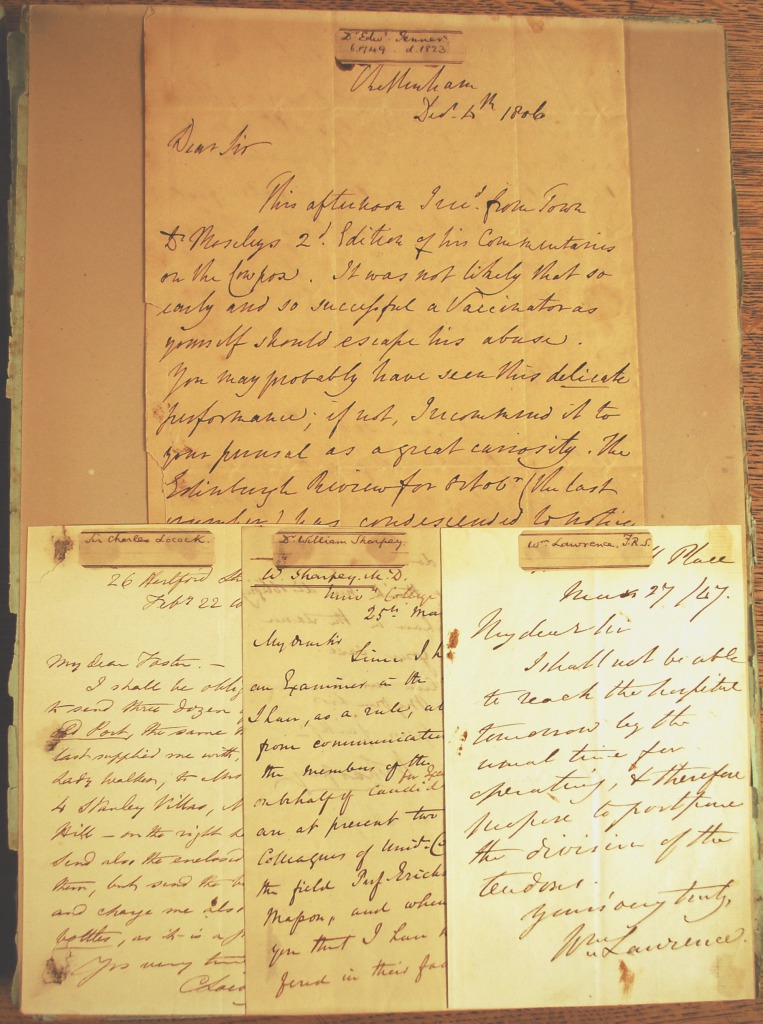
This page from the autograph book collects together letters from some of the most eminent medical men of the nineteenth century. The letter on the top half of the page is by Dr Edward Jenner, and on the bottom, from left to right, are Sir Charles Locock, Dr William Sharpey, and William Lawrence.
Sir Charles Locock (1799 – 1875) was employed as Queen Victoria’s obstetrician after her marriage in 1840, and went on to safely deliver all nine of her children, including the future King Edward VII. During her eighth pregnancy, Locock and his team were criticised in the popular press for giving the Queen chloroform during childbirth, then still perceived to be a new and dangerous practice (Victoria herself reported being very satisfied). Locock’s son, Frederik Locock, adopted a boy who later claimed to be the illegitimate son of Princess Louise; in 2004, their descendent Nicholas Locock unsuccessfully petitioned for a DNA test to prove this claim.
In this letter, Locock appears to be buying “three dozen” bottles of port.
Dr William Sharpey (1802 – 1880) was a Scottish anatomist and physiologist. First teaching anatomy at Edinburgh, in 1836 Sharpey was appointed as a Professor of Anatomy and Physiology at University College London, becoming the first Professor to teach a complete course of lectures in that position.
Sir William Lawrence (1783 – 1867) initially came to public attention over the publication of his book Lectures on Physiology, Zoology, and the Natural History of Man in 1819. Then a Professor of Anatomy and Surgery at the Royal College of Surgeons, Lawrence’s book made bold and direct contradictions to the Bible, especially in claims that “The representations of all the animals being brought before Adam in the first instance and subsequently of their being collected in the ark… are zoogically impossible.” The Natural History of Man was ruled blasphemous, and its copyright was destroyed. In later years he moved back into respectability, and eventually worked alongside Charles Locock as Surgeon Extraordinary, and later Serjeant Surgeon, to Queen Victoria. Unlike Locock’s specialised work, these positions looked after the Queen’s general health, both in and out of pregnancy. He also consulted Percy and Mary Shelley on their health, and the critic Marilyn Butler argues he could even have “guided the couple’s reading in the physical sciences” which later influenced Shelley’s depiction of Frankenstein.
In this letter, Lawrence apologises that he will be late to hospital tomorrow, and therefore “propose[s] to postpone the division of the tendons.”
Dr Edward Jenner (1749 – 1823), known today as “the father of immunology”, pioneered the world’s first vaccine in the form of the smallpox vaccine. Working from his observations that milkmaids who contracted cowpox became resistant to smallpox, Jenner began a revolution in disease control by intentionally exposing patients to cowpox. He called this process “vaccination”, after the Latin vaccina (“pertaining to a cow”). Previously, smallpox resistance had been attempted through “inoculation”, the introduction of small amounts of the actual disease to the patient, which was effective but still carried a small chance of fatality. Further, inoculated patients could spread smallpox to others, while vaccinated patients could not. The idea of injecting animal fluids into humans, however, was an uncomfortable one, and Victorian anti-vaccination advocates exploited this idea to suggest that vaccinated patients risked becoming hideous human-cow hybrids. Despite this, inoculation was eventually banned and vaccination made compulsory, protecting much of Europe from a disease which went on to kill over 300 million people in the 20th century, until the World Health Organisation finally eradicated smallpox in 1980. Smallpox remains the only disease eradicated with vaccination, and Jenner is estimated to have saved more lives than any other human in history.
In this letter, Jenner is writing to another vaccinator about Benjamin Moseley, the leader of the anti-vaccination movement. Moseley’s publication Commentaries on the Cowpox attacked Jenner for creating a “pagan…phrenzy” for cow-worship. As Jenner notes drily, “You may probably have seen this delicate performance; if not, I recommend it to your perusal as a great curiosity”.
By Tim Gao, Exhibition Research and Interpretation Volunteer
Categories: VolunteeringExhibition Interpretation Volunteer
Posted Wednesday, 4th February 2015
The Angus Library and Archive are seeking a volunteer Exhibition Interpretation Volunteer for an upcoming exhibition on 17th – 20th century literature, with a working title of ‘Virtue and Vice and All Things Nice’.
This role would offer you the opportunity to gain skills and experience researching in a library and archive, handling rare books and co-curating an exhibition which will be open to the public.
The exhibition will include children’s literature, moralising literature, poetry, hymns, travel literature, and some of the more beautiful and bizarre items from the collection.
Click here for the full role description: Exhibition Interpretation Volunteer
If you are interested in the role, please send your CV and cover letter to angus.library@regents.ox.ac.uk by Wednesday 11th February.
Categories: Opportunities Vacancies Volunteering
Four candles? Four sets of fire irons…
Posted Friday, 30th January 2015
We often find unusual correspondence in The Angus and the example below is no exception: a witty letter of complaint by the poet, Thomas Moore. Whilst researching the Revd Dr Joseph Angus’ autograph and letter collection, one of our volunteers, Tim Gao, alerted us to the amusing letter and has kindly provided a transcript:
I have [delayed] till the last moment troubling you with a commission, which is of much importance to us, – the waggon that brought our furniture left behind (or at least did not leave here) a Box of Candles, and four sets of fire-irons which were wrapped up in the Hall Oil Cloth – These two packages have never come, & what I want of you is to go tomorrow to the Axe Inn & make strict enquiries about these said articles – I know you will be ready to do any thing towards my illumination, and certainly the loss of our best Candles is the most gloomy privation that could happen us – The worst of it is these packages, like many of the rest, were not directed, but you must make them have a strict search made through the storerooms – the Candles were in the usual signed Box of Tallow-Chandlers – Tomorrow, if you please.
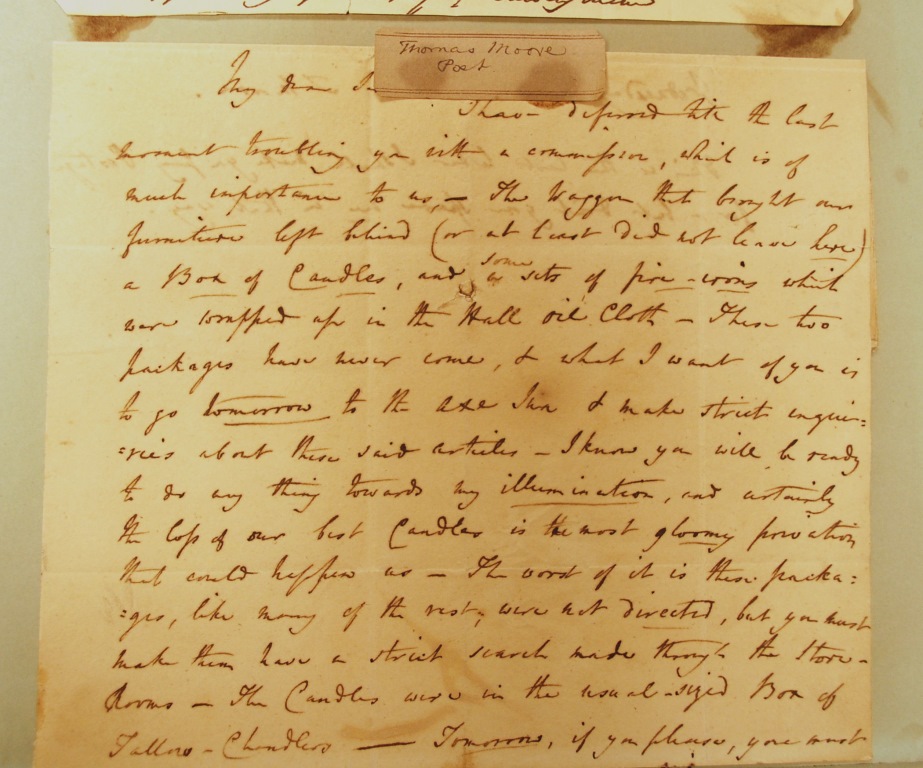
Categories: Exhibitions Volunteering
Job Vacancy: Learning and Participation Officer and Project Evaluator
Posted Wednesday, 14th January 2015
Learning and Participation Officer and Project Evaluator
The Angus Library and Archive
8 month FT contract to start mid-February 2015
£22,440 pro rata
Regent’s Park College (RPC), a Permanent Private Hall of the University of Oxford, has a full-time, grant- funded position for a Learning and Participation Officer and Project Evaluator. RPC has secured funding from the Heritage Lottery Fund (HLF) and the Baptist Union’s Newington Court Fund to deliver an exciting project which will enable The Angus Library and Archive (The Angus) to reach a wider audience resulting in greater participation.
We are therefore looking to recruit an enthusiastic, highly organised and motivated person with educational experience in the museum, archive or culture sector, to fill this varied and interesting post. This position will focus on coordinating the outreach activities by liaising with schools and heritage groups and assisting with the development of exhibitions and seminars to promote treasures held in The Angus. The role will also involve launching online teaching materials for KS3 and supporting Archive Taster sessions. The role of Project Evaluator will involve monitoring the outcomes of the project according to the Activity Plan and present an evaluation in accordance with the appropriate guidelines. The role requires previous experience in public engagement in the museum, archive or other cultural sector. Knowledge and experience of Heritage Lottery Fund projects would be desirable but not essential.
For more information regarding this position or to request an information pack please contact the Project Administrator, anja.clark@regents.ox.ac.uk or (01865)288142.
Closing date is 12pm Friday 23rd January 2015. Interviews will be held the week beginning 26th January.
Categories: Opportunities VacanciesVolunteering with Angry Hippos
Posted Thursday, 4th December 2014
The Angus Library and Archive are seeking a volunteer Exhibition Researcher for an upcoming exhibition on 17th – 20th century literature, with a working title of ‘Virtue and Vice and All Things Nice’.
This role would offer you the opportunity to gain skills and experience researching in an archive, handling rare books and curating an exhibition which will be open to the public.
The exhibition will include children’s literature, moralising literature, poetry, hymns, travel literature, and some of the more beautiful and bizarre items from the collection. To give you an idea of the sorts of things we have found so far, here is a very early 18th century angry hippo:
Please contact angus.library@regents.ox.ac.uk by Monday 5th January if you’d like to find out more about volunteering, or call 01865 288142.
Categories: News OpportunitiesReflections on a First World War exhibition
Posted Wednesday, 3rd December 2014
‘For Liberty Against Tyranny’ is our first exhibition to be situated in just a short few years of extreme turmoil. Focusing on the First World War, our exhibition research volunteers were faced with a wealth of correspondence, photographs and other documents borne out of this chaotic portion of history.
In previous exhibitions, we’ve had the luxury of a clear narrative of progress. Our first exhibition examined the abolition of slavery, and our second celebrated the changing roles of nonconformist women. Whilst slavery is undeniably still present in modern forms, and women are still confronted with the frustrations of a predominantly patriarchal world, we can trace a movement forward, at least in legal terms in the UK.
In our First World War exhibition, there was little to be gained from attempting to demonstrate a narrative of progress. Instead, we took on the ideas of hope and change which rang through the words of those who became caught up in the conflict. The exhibition concluded with the optimistic words of the Revd. J. H. Rushbrooke, spoken at the Baptist World Alliance Third World Congress in 1923:
I rejoice in the knowledge that the need in Europe is far less than it was. Slowly, painfully slowly, normal conditions of life are emerging…
Yet, whilst we ended with the most hopeful words our archive could offer, we knew that when Rushbrooke gave his speech he could not have foreseen the approach of a second world war, and, a century on, a world still filled with conflict.
It is challenging to present an insight into how the tremors of the First World War impacted upon nonconformists using just a selection of material from The Angus. What became clear was that no matter what we displayed, we’d sadly be showing only a small portion of the effect that the war had on so many people. Those who had been calling for the Churches of the world to unite in working towards global peace became swept up in the dialogue of warfare strategy. Those who had seen their congregations through births, marriages, and deaths, were dealing largely in deaths. Those who had sought missionary work further afield saw the need creeping closer to home.
Through all the grief and despair displayed in our archival material, there’s a desire to tell a story with a positive ending. There’s an urge to mould the exhibition narrative to fit our own longing for progress. I’m sure other exhibition organisers and curators have felt the same pangs of regret, revulsion and reverence when handling First World War material. Yet, we accept that we cannot shape the story to fit any kind of neat, optimistic ending. It has often been stated that the First World War ‘shook the world’ and that it was a ‘catalyst for change’, and it is perhaps too much to say that it is entirely incomprehensible. Yet, the feeling remains that through our exhibition we only glimpsed at the war’s impact. Over the next four years of First World War centenary activities, in Oxford and beyond, I wonder how much more we shall truly see.
By Katie Short, Learning and Participation Officer
Categories: Exhibitions

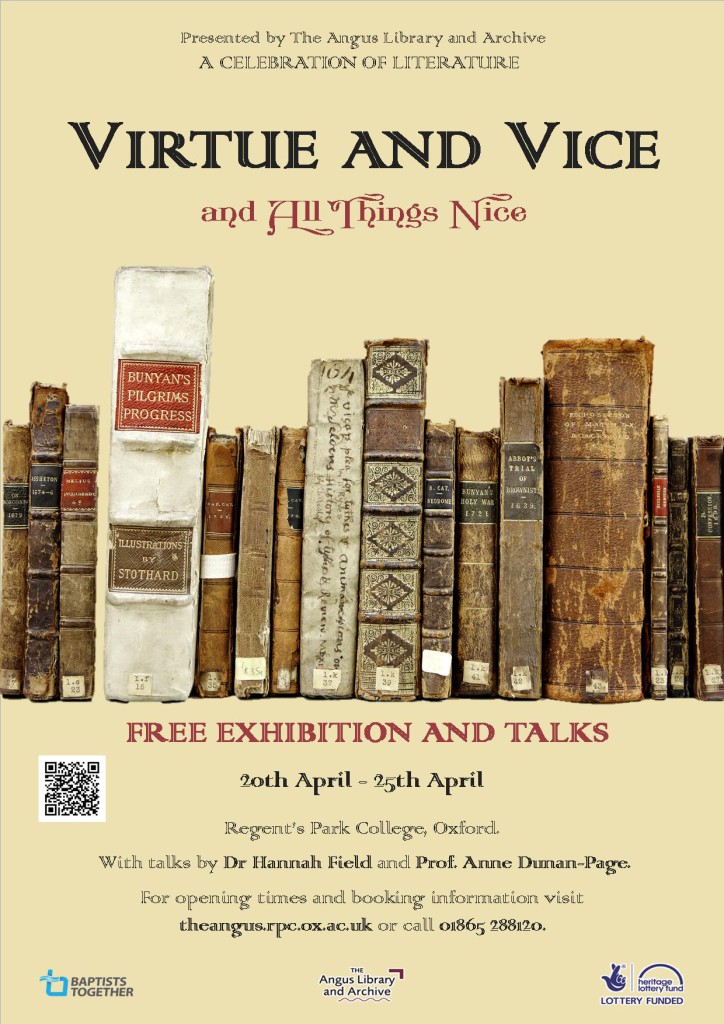
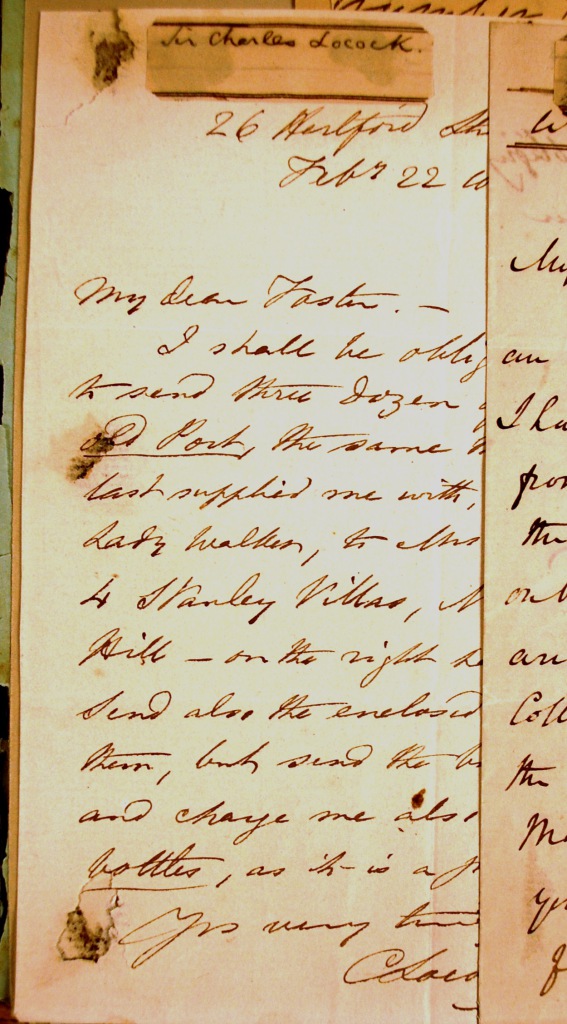
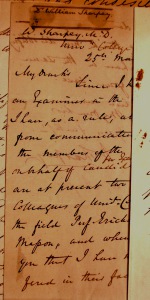
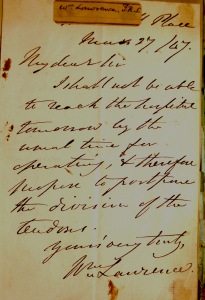
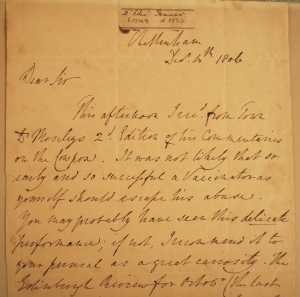
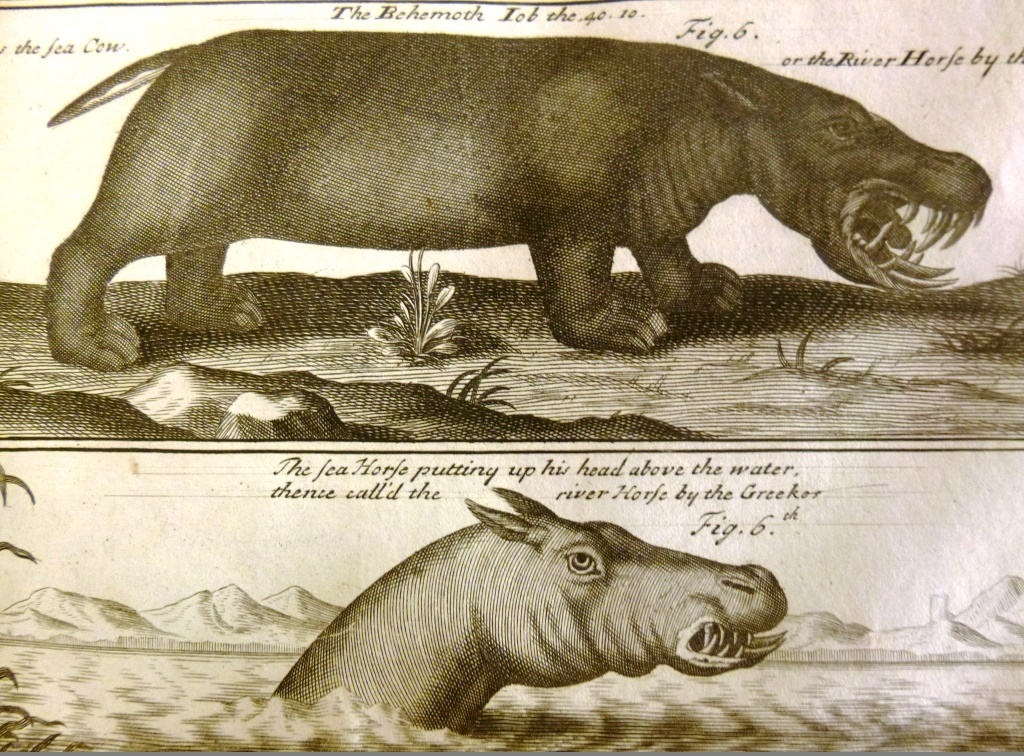
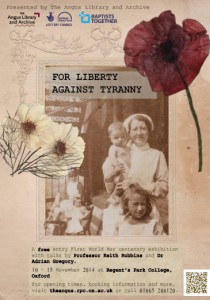
Recent Comments